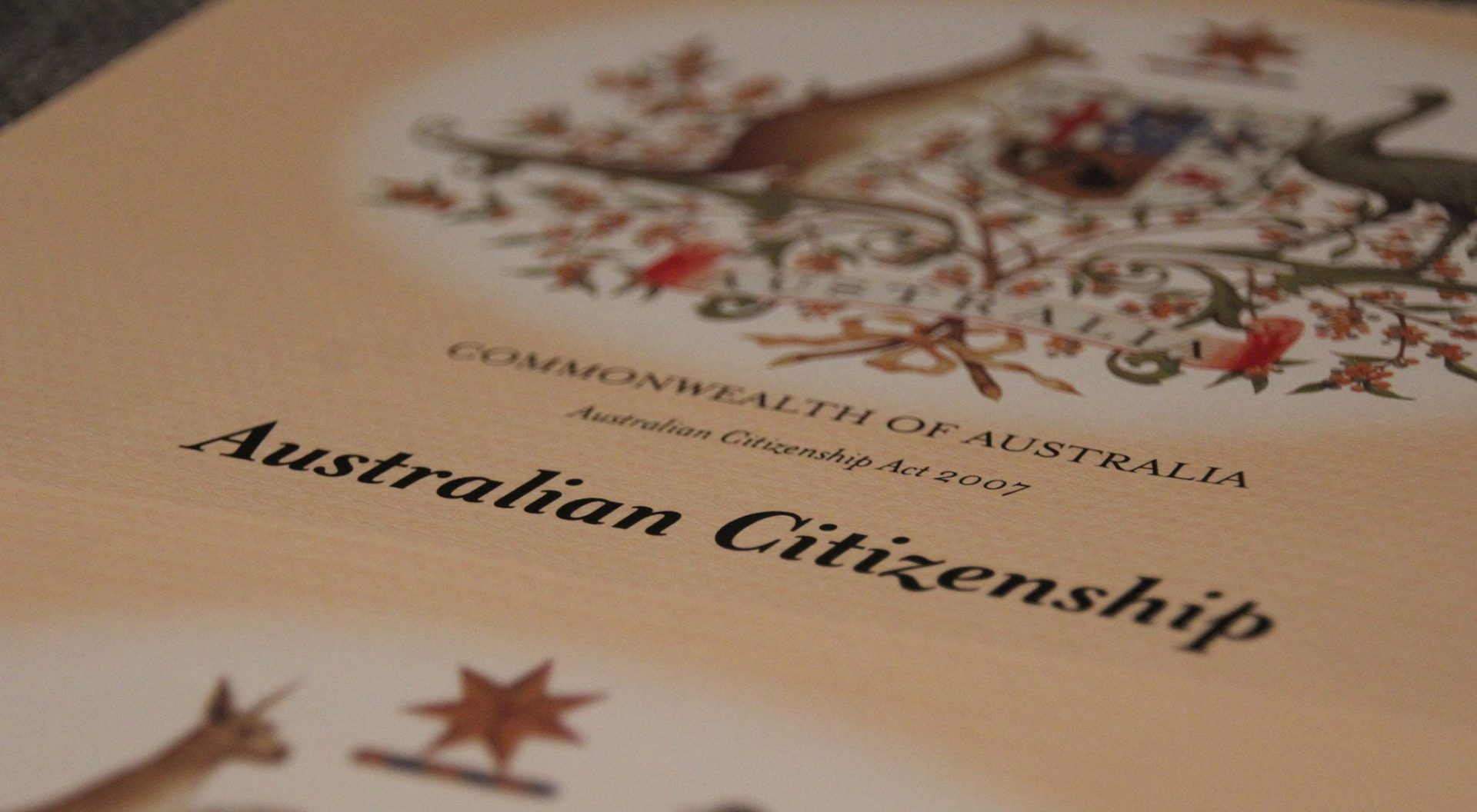Australian Citizenship
Your Path to Belonging

MAJOR PATHWAYS TO AUSTRALIAN CITIZENSHIP
Australia offers citizenship through three main pathways:
By Descent, by Conferral, and by Birth.
Each pathway has unique eligibility criteria based on your circumstances. Whether you’re an Australian citizen by descent, planning to apply for citizenship by conferral, or wondering about the rules of citizenship by birth, we’ve got you covered with everything you need to know.
If you were born outside Australia to an Australian citizen parent, you may already have the right to Australian citizenship by descent.
This pathway ensures that the children of Australian citizens, even when born overseas, can enjoy the same privileges and rights.


AUSTRALIAN CITIZENSHIP BY DESCENT
Citizenship by conferral is the most common pathway for migrants who have permanently settled in Australia. After fulfilling residency and other requirements, you can apply to become a full Australian citizen.


AUSTRALIAN CITIZENSHIP BY CONFERRAL
REQUIREMENT
Permanent Residency Status
You must hold a permanent resident visa or be an eligible New Zealand citizen.
Time as a Permanent Resident
Absences from Australia
You should have lived in Australia on a substantive visa for the past 4 years. Within those 4 years, you must have been a permanent resident for at least the last 12 months.
You must not have been absent from Australia for more than 12 months in total during the past 4 years, including no more than 90 days in the 12 months immediately before applying.
RESIDENCY CALCULATOR
Use the Residency Calculator to check your eligibility based on your travel history. (Details Below)
The lawful residence date and the permanent resident date are distinct milestones in an individual's immigration journey. Here's how they differ:
1. Lawful Residence Date
Definition: The date when you first arrived in Australia and began residing lawfully under a valid visa. This includes any temporary visa that allowed you to stay legally in the country, such as a student visa, work visa, or visitor visa.
Significance: This date is relevant when calculating the total time you have lived lawfully in Australia. It's part of the 4-year residency requirement for citizenship.
Scope: Includes time spent on any visa (temporary or permanent) as long as the stay was legal.
2. Permanent Resident Date
Definition: The date when you were granted a permanent resident (PR) visa. This is a significant milestone because PR status is required for citizenship eligibility.
Significance: This date is crucial for determining whether you meet the 12-month minimum period of permanent residency immediately before applying for citizenship.
Scope: Only starts from the point when you officially became a permanent resident.
Difference between Lawful Residence Date & Permanent Residence Date
EXEMPTIONS
Certain applicants, such as partners of Australian citizens, refugees, or individuals in exceptional circumstances, may be eligible for exemptions to the residency requirements.
Character Requirements
Good Character:
Applicants aged 18 years or over must demonstrate good character. This is assessed based on adherence to Australian laws and community standards.
Considerations for Good Character.
The Applicant:
Does not have any criminal convictions or ongoing legal matters.
Has complied with Australian immigration laws.
Has financial stability, including no bankruptcy history.
Has evidence of community contributions and no negative behavior.
Is not associated with individuals or groups involved in criminal activities.
Has no past deportations, removals, or visa cancellations.
Has no involvement in international crimes or human rights abuses.
Understanding of Responsibilities and Privileges
Knowledge of Australia:
The applicant has a good understanding of the responsibilities and privileges of Australian citizenship, which is assessed through a citizenship test.
Language Requirements
Basic English Proficiency:
The Applicant has a basic knowledge of the English language to communicate effectively in Australia.
Intent to Reside
Ongoing Residency:
The applicant should intend to reside or continue residing in Australia, or maintain a close and continuing association with Australia.
Not everyone born in Australia automatically becomes a citizen. Citizenship by birth applies to those born in Australia to at least one Australian citizen or permanent resident parent. For individuals born to non-citizen parents, specific conditions apply.


AUSTRALIAN CITIZENSHIP BY BIRTH
3 Pathways to Australian Citizenship by Birth: What You Need to Know
A. Born in Australia to an Australian Citizen or Permanent Resident Parent
If a child is born in Australia and at least one parent is an Australian citizen or permanent resident, the child is automatically an Australian citizen.
B. Born Outside Australia to an Australian Citizen Parent
Children born overseas to at least one Australian citizen parent can apply for Australian citizenship by descent. It’s a straightforward process, ensuring that Australian heritage passes to the next generation.
C. Born in Australia – The 10-Year Rule
For children born in Australia to parents who are not citizens or permanent residents, citizenship can still be granted. If the child has lived in Australia as their primary residence for the first 10 years of their life, they automatically become an Australian citizen on their 10th birthday.
A Recent Case Brings Flexibility to the 10-Year Rule
In the recent case of Minister for Immigration, Citizenship and Multicultural Affairs v Sidhu [2023] FCAFC 133, the Full Federal Court introduced a broader interpretation of the term “ordinarily resident.”
The court recognized that a child can still qualify under the 10-year rule even with periods spent outside Australia. In this case, the child’s parents lived and worked in Australia while the child spent several years living with grandparents in India. Despite this, the child was granted Australian citizenship on their 10th birthday.




